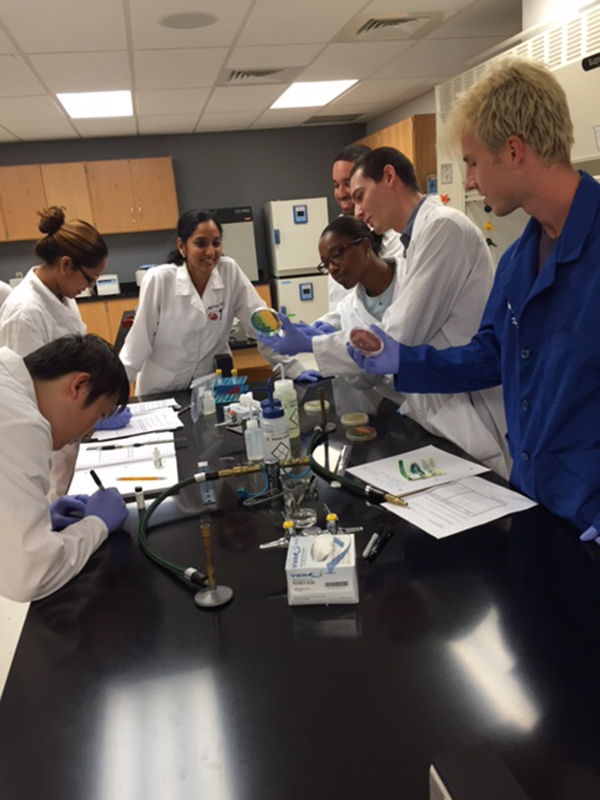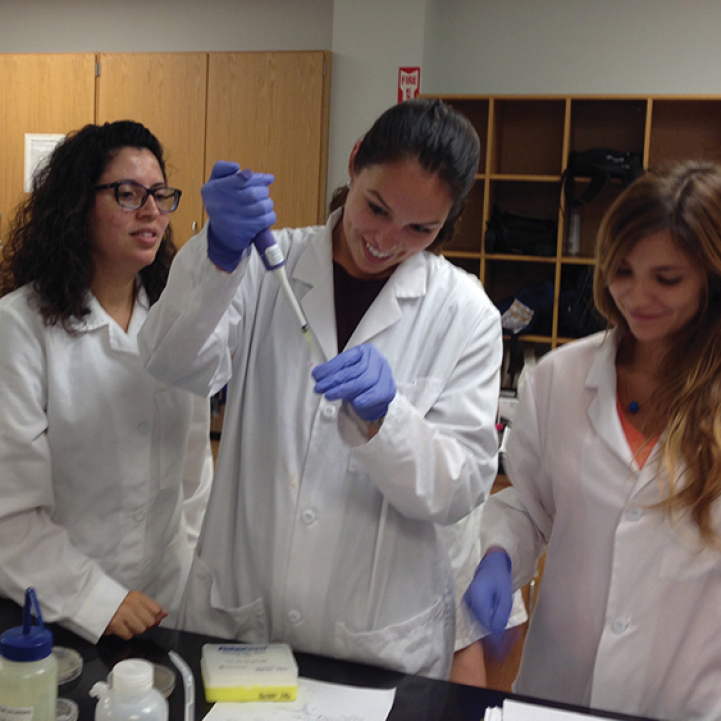 With NSU now a partner of the Small World Initiative (SWI), students at the Halmos College of Natural Sciences and Oceanography are conducting unique research, participating in a global research consortia, and presenting their work at several national and local conferences.
With NSU now a partner of the Small World Initiative (SWI), students at the Halmos College of Natural Sciences and Oceanography are conducting unique research, participating in a global research consortia, and presenting their work at several national and local conferences.
The SWI is an innovative program developed by Yale University to encourage students to pursue careers in science while addressing a worldwide health threat—the diminishing supply of effective antibiotics.
NSU joined the consortium of partner institutes in 2014-2015. Aarti Raja, Ph.D., assistant professor at the college, brought the program to NSU.
Julie Torruellas-Garcia, Ph.D., and Chris Blanar, Ph.D., associate professors at the college, also are participating in SWI with their students. (Some 70 students are participating in fall 2015). Many students have presented at conferences that include NSU’s 2015 Undergraduate Student Symposium, the American Society for Microbiology (ASM) Conference for Undergraduate Educators in Austin, Texas (May 2015), and the ASM Florida chapter meeting in Cocoa Beach, Florida (October 2015).
The SWI has designated November 16–22, 2015, as World Antibiotic Awareness Week, aligning with World Health Organization’s (WHO) Antibiotic Awareness Week and U.S. Centers for Disease Control’s Get Smart About Antibiotics. The WHO has cited antibiotic resistance as potentially the most important medical challenge of the 21st Century.
Addressing that challenge, students are conducting research that isolates bacteria from soil in their local environments. This could lead to the discovery of novel antibiotics, as more than two-thirds of antibiotics originate from soil bacteria or fungi. Through a series of experiments, students collect soil samples, isolate diverse bacteria, test bacteria against clinically-relevant microorganisms, and characterize those showing inhibitory activity.
SWI advances the goal of antibiotic discovery by bringing together researchers, scientists, and scholars worldwide and advancing promising antibiotic candidates into the pipeline of drug development.
Since its inception in 2012, SWI has grown to include 109 participating schools in 32 states, Puerto Rico, and nine countries.

